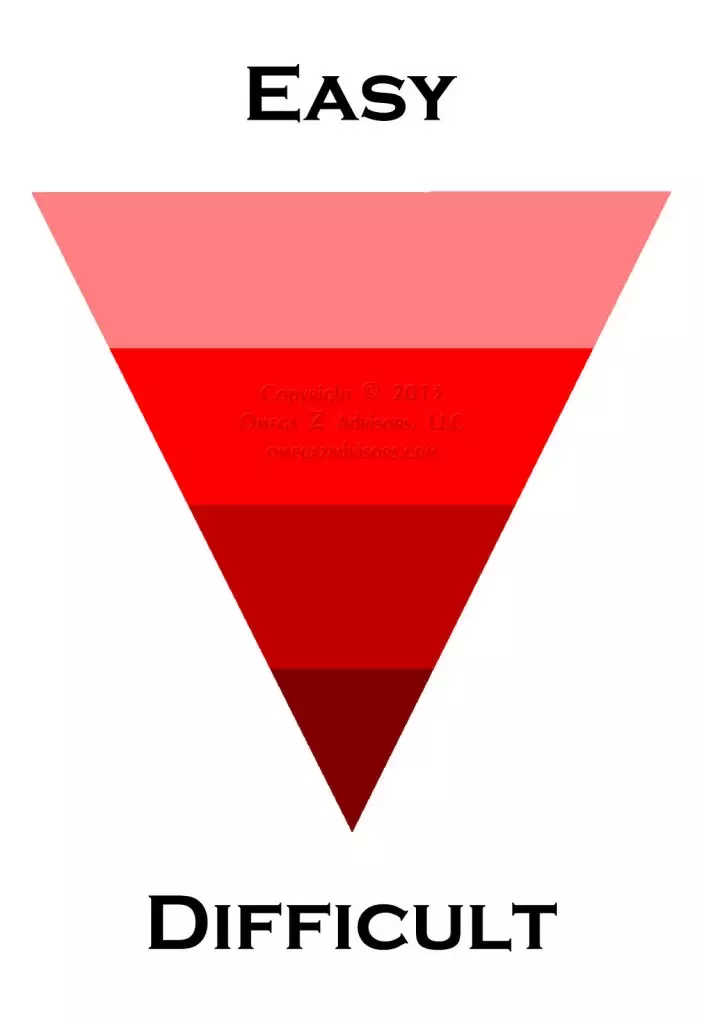Why Problems Occur (Alert #1): Easy over Difficult

When people are tending to do the easy over the difficult, it is a sign that problems might be brewing.
When problems occur or when trying to anticipate them in problem solving, I look for seven alerts. While no single one automatically creates a problem, two or three get me there. The first alert is when I find people tending to do the easy over the difficult.
“You only get out what you put in,” is a common refrain. If true, the easy doesn’t net much. For example:
- Driving three miles is much easier than running them, but we don’t get nearly the health benefits.
- Emailing someone is much easier than meeting someone in person, but we don’t get nearly the relationship building return.
- Training classes are much easier than one-on-one instruction, but they are not nearly effective.
- Telling people what to do is much easier than listening, but relationship building suffers.
- It’s easier to just do the work than it is to document it, but we’ll end up explaining ourselves more.
- It’s easier to be nice to bad employees than to be honest, but then they don’t improve.
- It’s easier to avoid conflict, but then important issues are unresolved.
- It’s easier to just follow the rules or process than it is to stop and think there might be a problem.
- Avoiding those we don’t like is easier, but projects extend themselves.
- It’s easy to procrastinate when we don’t like the task, but all the unlikeable stuff piles up.
- It’s easy to budget against a history, but then we avoid new endeavors.
- Glossing over details is easy, but they usually come back to haunt us.
So, when I see the easy trumping the difficult too much, I become alarmed. Either there is a reckoning, underachievement or . . . all the difficult rolls downhill to some poor soul’s desk.
- Eight Alerts Help Us Anticipate Problems
- Why Problems Occur (Alert #1): Easy over Difficult
- Why Problems Occur (Alert #2): Immediate over Enduring
- Why Problems Occur (Alert #3): Majority over Minority
- Why Problems Occur (Alert #4): Known over Unknown
- Why Problems Occur (Alert #5): Big over Small
- Why Problems Occur (Alert #6): Same over Unique
- Why Problems Occur (Alert #7): One over Many
- Why Problems Occur (Alert #8): Demarcation over Gradient

